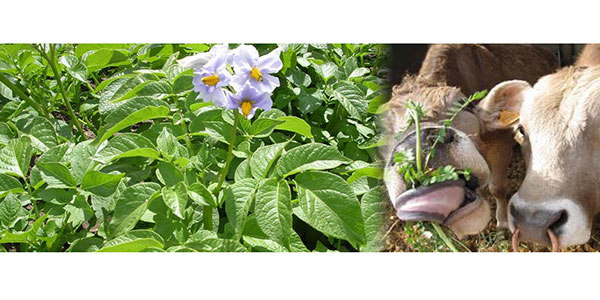[author title=”Pratham Junius Ruffus” image=”http://”][/author]BSc Agriculture or BVSc
The world is hungry. Food is the basic need of every man. And hence in an agro based society BSc Agriculture and BVSc will never go out of style. We’re heading in to the most exciting time in human history. Technology is growing at a speed that we could not fathom even just 5 years back. This has led to agriculture and veterinary sciences also embracing technology and that has pushed both industries into taking a bigger role in shaping the future of this nation. Both these industries have huge potential going forward and over the last few years increasing amounts of job opportunities have opened up.
A choice between these two is really hard to make. So today we will have an in-depth analysis of both the courses. So that it becomes easier for you to make the choice.
Core Subjects |
| BSc Agriculture | BVSc |
|
|
BSc Agriculture
A Career in Agriculture
20% of India’s GDP depends on agriculture. 62% of the population depend on it for their livelihood. And 100% of the population depend on it for their food. Agriculture is what keeps this country going. In this majorly agro-based nation, agricultural science automatically becomes very important. Agriculture include farm management, horticulture, businesses and industries that manufacture agricultural machinery, industries that buy and process farm products, banking activities for financing and developing farms, research for improving quantity and quality of farm products.
Agricultural Science is mainly the study of agriculture. It is a multidisciplinary field which consists of a variety of scientific, technical and business subjects that promote the efficient production of quality food on the farm and in the agricultural-food industry linked to farming. Agricultural science include research and development on production techniques; improving agricultural productivity in terms of quantity and quality; transformation of primary products into end consumer products and prevention and correction of adversities. Agricultural science professionals focus on agricultural production and livestock.
Agricultural scientists conduct research to discover and advocate effective and practical ways to sustainable land use, food and fiber production and food harvesting. Even though food production is the mainstay of the agricultural industry, textiles and fibers also are an integral part of the agricultural industry.
Skills Required
Agricultural Science requires passion for research, development and improvement. To be a successful agricultural scientist or professional, good knowledge in science and familiarity with crops, pastures, soil types, agricultural and horticultural chemicals etc is of utmost importance. A keen and analytical mind, a high level of concentration, an aptitude for research, ability to work as part of a team, abundant physical stamina to put in long hours of work and patience are all attributes that you will need. Having basic computer knowledge will come in handy when there is need to analyze data and to control biological and chemical processing.
The Course(BSc Agriculture)
B.Sc. Agriculture is a 4-year undergraduate Bachelor of Science(BSc) degree awarded by Indian Universities for students who have at least finished their +2 preferably with Science stream. B.Sc. in Agriculture is recognized as a professional degree by Government of India on par with BE/B.Tech or MBBS. The course is popular as the demand for trained professionals in agriculture is very high.
Admission to the course is usually through entrance exams like KEAM, EAMCET. There are 42 State Agricultural Universities (SAUs), 1 Central Agricultural University (CAU), 5 Deemed Universities (DUs) and 4 general Central Universities with Agriculture faculty in India.
After BSc Agriculture
After your bachelors degree you can do a masters and follow that up with a PhD program too.
The Master’s Degree is MSc Agriculture which has multiple specializations like agri botany, agri chemistry, agri economics, agri zoology, agronomy, extension education, forestry, micro biology, soil science, sericulture, agricultural biotechnology, agriculture sciences, applied aquaculture, animal husbandry, cropsiology, bio sciences, cooperative management, agricultural statistics, agri entomology, social forestry, farming system management, horticulture mycology, microbiology, plant physiology, nematology, plant ecology, plant pathology which opens up a lot of scope.
BVSc
A Career in Veterinary Science
A career in veterinary science is a dream come true for animal lovers. In a world where dogs are considered man’s best friend and people invest at times more into their pets than they do their friends veterinary science seems like a very lucrative and satisfying career option. As the human race makes groundbreaking progress in the field of medicine veterinary science has not been far behind. Over the last few decades veterinary science has also grown phenomenally and our furry and not so furry friends have health benefits like never before. Veterinary Science is a hard profession but a fulfilling one. It requires utmost skill and commitment. As animals cannot express their problems verbally it makes the job harder.
Veterinary Science is an extremely high paying profession but is not very easy to get qualified in as the degrees offered are tough to crack. Also, there has been an unpredictable growth in poultry and animal sector, which results in increasing demand for veterinary science in various sectors of livestock and poultry.
Skills Required
Firstly, you will need to have genuine love and compassion for animals to be a true vet. Being considerate of animals will be important as animals cannot express verbally their problems. Vets must be able to deal with working in emergency circumstances under pressure. A vet should have the ability to put the animals at ease, to be a team player, have powers of observation and self reliance, adaptability, indifference to the occasionally disagreeable conditions of work.
The Course(BVSc)
Bachelor of Veterinary Science or B.V.Sc. is an undergraduate program in veterinary sciences. This degree is awarded to students who have at least finished their +2 with Physics, Chemistry and Biology. A graduate from this course becomes a veterinarian.
Veterinary science is the branch of Science that deals with the prevention, diagnosis and treatment of disease, disorder and injury in all non-human animals. The duration of this course is a minimum of 3 years and maximum of 5 years. The average fee in India could range anywhere from 7,000 to 22,000 INR depending upon the institute. A person could find employment in both government and private sectors. The demand of this course is very high and of varied diversities.
After BVSc
Even in this course you can further do a masters degree or even a PhD. The master’s degree is MVSc and has multiple specializations like medicine, surgery, anatomy, bacteriology, biochemistry, cardiology, dermatology, microbiology, molecular biology, anaesthesia, gynaecology, pathology, toxicology and virology pharmacology.





